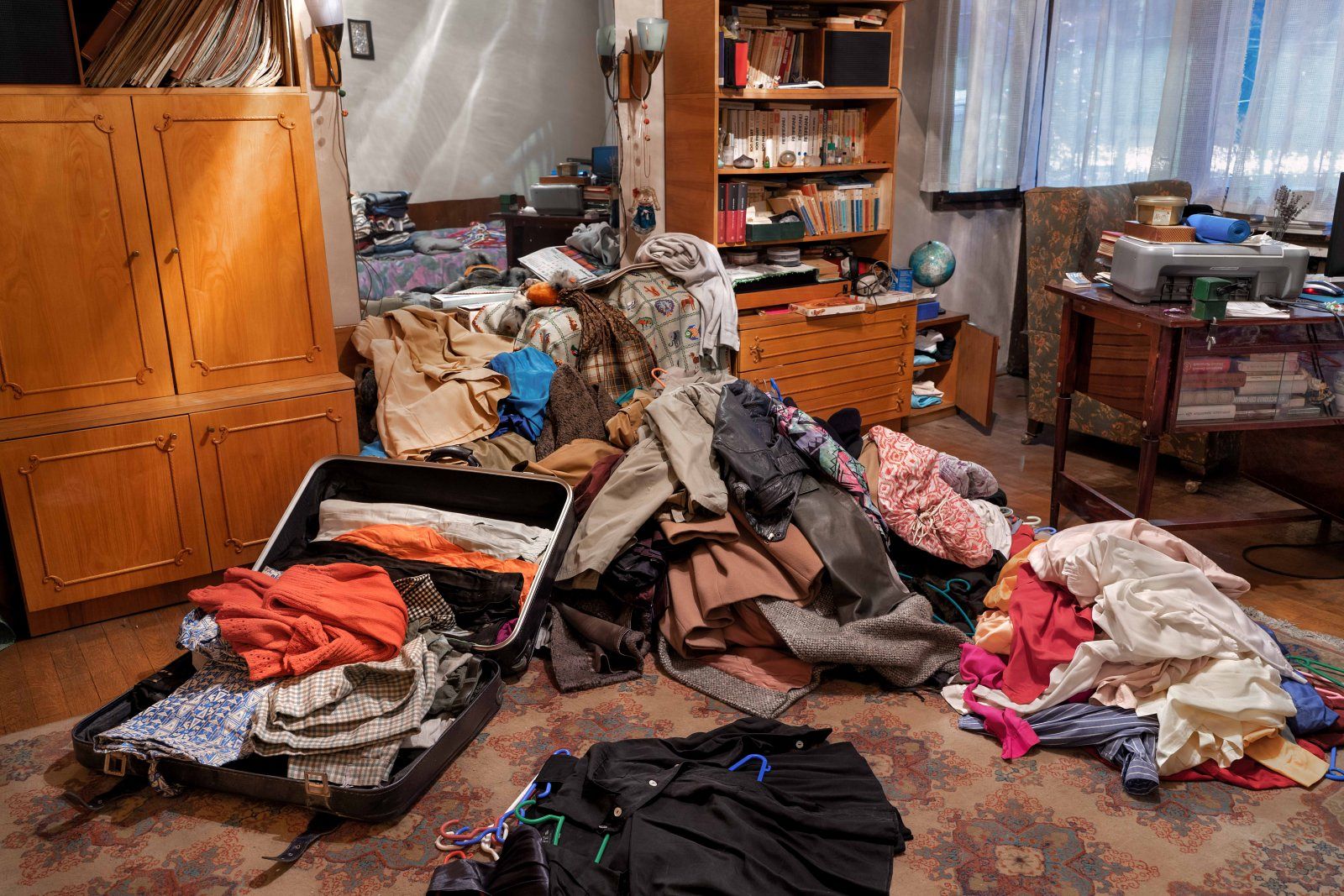
For the past five months I’ve been back home in Romania while my sister has left to study abroad. In the face of Bucharest, a city that has changed beyond my memories, I found brief moments of comfort and kinship in the cups of coffee I shared with different grandmothers. I was welcomed in their apartments where they confronted me with the truth of their loneliness and the joy of an already past life - this was difficult for me. As I left with photographs of their apartments, concentrated versions of home, I shared them with my sister. Our back and forth has now become this book.
She wants to move forward, to see what other ways there are to live. As for me, I cannot turn away from looking backwards anymore. The unstoppable passing of our life here is nostalgic to me and photography is a shelter.
This project is dedicated to Buni, the grandmother of my friend whose Sunday dinners I will now miss.
BOTH FEET ON THE MAP
Thesis
My thesis is an allegorical story about how a thesis comes to be, as well as a recording of the process involved writing it. It concerns both sides of a number of discussions such as: objective/subjective, fact/fiction, phenomenological/epistemological, real/imagined, subject/photograph, signified/signifier, simulacra/simulation and other loosely synonymous terms. In the end I’d like to see it as a story. A case of it is what it is, so much so that I think it evades a summary.
It begins with itself in the most literal way possible - a guy, Marco, sitting at his desk, injecting ink through the tip of his pen into the pulp of a sheet of paper. He must write a thesis, he must connect mind to material. Through this sacred duality the man and his desk begin to transform. With a mind bent over itself and onto the paper, the table's geography becomes rich with meaning and unfolds a transformative journey. It is an associative and psychedelic adventure, rich with observations rather than occurrences. Weaved within it are metaphors about mapping, sailing and geography. They are a means to take both a meta and an associated position with the act of representation - writing in the present case. What my thesis is really about, is how an undeniable “it”, something that is in front of us, will never be perceived as itself, rather, it is always the product of a rich and chaotic process of internal representation. My paper goes further to say that if an “it” will always be behind the abstractions produced by our nervous system, then the only real we can be sure of are the abstractions themselves. In this category I place written language, as well as sight, speaking or photography.
The end of the thesis comes with the realisation that a discussion about “what is meaning/how is it created?” is implicitly circular, limited by the conventions of language themselves. The initial premise of the thesis, that language is self referential rather than analogous to an exterior truth, re-confirms itself. The text evaporates into sensations, back where it has begun. Though now I am no longer confined to the sensations of my desk, I feel the clothes on my skin instead of the thoughts in my head, I eat and sleep and walk, the thesis has been finished.